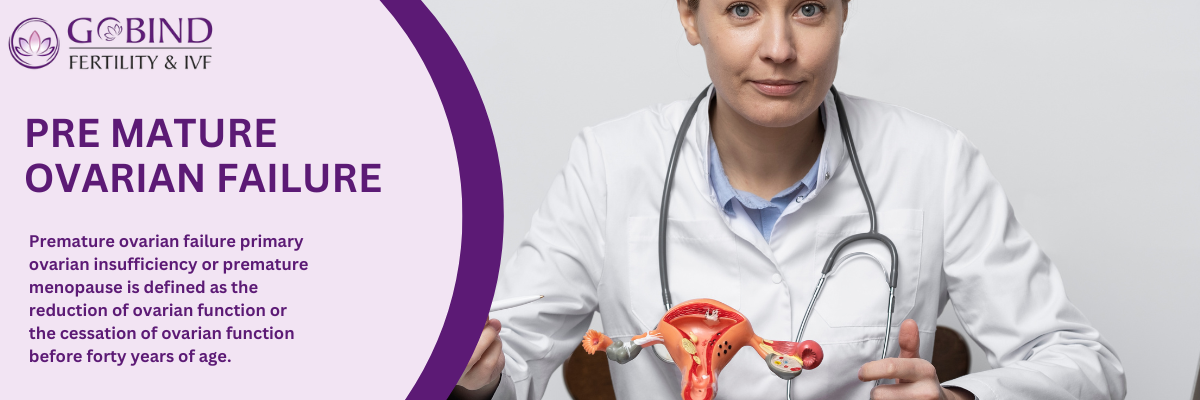

Premature Ovarian Failure
Premature ovarian failure (POF) is when the ovaries stop functioning normally before age 40, leading to reduced estrogen levels and infertility. Symptoms include irregular or absent periods, hot flashes, and vaginal dryness. Treatment typically involves hormone therapy.
Premature Ovarian failure
A disorder known as premature ovarian failure (POF), or primary ovarian insufficiency, occurs when a woman's ovaries cease to function normally before the age of 40.
A woman's ovaries normally produce eggs and the hormones progesterone and estrogen until she enters menopause, which usually occurs around age 51. On the other hand, premature ovarian failure (POF) results in early menopausal symptoms and infertility.
Symptoms of POF:
- Irregular or missed periods
- Hot flashes
- Night sweats
- Vaginal dryness
- Irritability
- Difficulty concentrating
- Decreased libido
Causes of POF can include:
- Autoimmune disorders (where the body attacks its own ovaries)
- Genetic defects or chromosomal abnormalities
- Chemotherapy or radiation therapy
- Surgery that impacted the ovarian blood supply
- Viral infections
- Unknown causes (idiopathic)
Complications associated with POF:
- Infertility
- Osteoporosis (due to low estrogen levels)
- Heart disease
- Vaginal atrophy
- Depression and other mood disorders
Treatment options:
- Hormone replacement medication to control osteoporosis risks and manage menopausal symptoms
- Assisted reproductive technologies, such as in vitro fertilization (IVF) for childbearing individuals - Counseling to help deal with the psychological effects of infertility
Prompt diagnosis is essential for managing long-term health concerns and starting treatment as soon as possible. POF-afflicted women need to be monitored for cardiovascular risks, bone health, and emotional assistance.

















